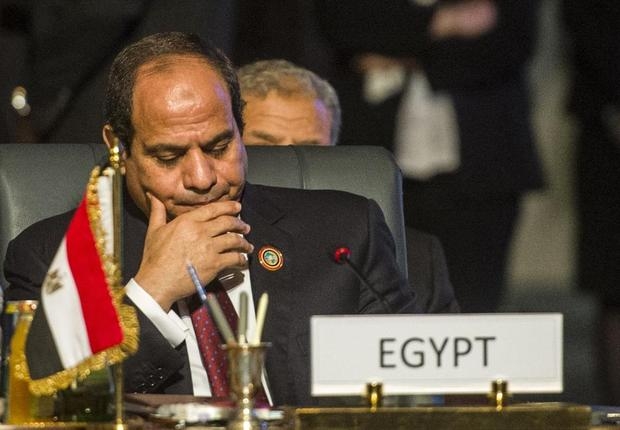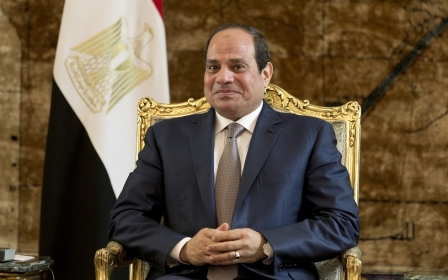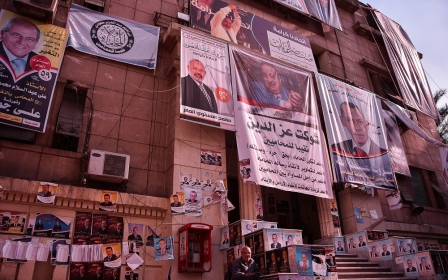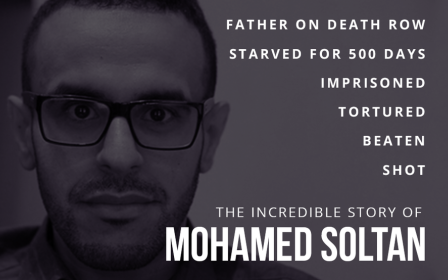Low turnout in 1st round of Egypt's parliamentary elections

The first round of Egyptian parliamentary elections, held over the weekend in half the country's provinces, saw turnout of only 26.6 percent, an electoral commission official said Wednesday.
That was a sharp drop from 62 percent registered in the first stage of the last parliamentary poll, held in 2011 months after the ouster of longtime president Hosni Mubarak.
Observers say the outcome of the election, which ends on 2 December, is a foregone conclusion. The 596-member parliament is expected to firmly represent President Abdel Fattah al-Sisi's iron-fisted policies in the absence of any opposition.
"The percentage of voters participation was 26.56 percent," Ayman Abbas, head of the Electoral Commission, told reporters.
Prior to voting, Sisi had urged a large turnout, saying "active participation of all segments of the society is important for the election".
More than 27 million voters were eligible to cast ballots in the first round, held on Sunday and Monday, across 14 of the country's 27 provinces.
All of the 103 constituencies from the first round will hold a run-off vote on October 27-28, Abbas said.
The second and final round of the election in the remaining 13 provinces begins on November 21, with more than 28 million eligible voters.
Any necessary runoff will be held on December 1-2.
Of the 596 lawmakers, 448 will be elected as independents, 120 from lists and the rest 28 will be direct presidential appointees.
In the first round, 60 seats from the lists were swept by a pro-Sisi coalition For Love of Egypt.
The legislature that came out of the 2011 election, held following the fall of Mubarak, was dissolved in June 2012, just days before the election as president of Sisi's predecessor, Islamist Mohamed Morsi.
Morsi, Egypt's first freely elected civilian leader, was ousted by then army chief Sisi after mass street protests.
An ensuing crackdown on Morsi's Muslim Brotherhood left hundreds dead and tens of thousands imprisoned.
While the 2011 election was swept by Islamists, experts say the new parliament will simply rubber-stamp Sisi's decisions.
The current elections are being held in the absence of any opposition.
While the Brotherhood has been brutally crushed and banned from contesting candidates, many secular and leftist groups are also either boycotting the vote or are badly represented.
In addition to the For Love of Egypt coalition, another key group is The Egyptian Front, led by Ahmed Shafiq, Mubarak's last premier.
The openly pro-Sisi Salafist Al-Nur party, which backed Morsi's ouster, is the only Islamist party standing.
Leftist and other secular parties lack popular support and have little chance.
Meanwhile, the African Union Election Observation Mission, said the first round was "conducted in a transparent and peaceful manner".
"The elections provided an opportunity for citizens to freely express their democratic right to vote."
Middle East Eye propose une couverture et une analyse indépendantes et incomparables du Moyen-Orient, de l’Afrique du Nord et d’autres régions du monde. Pour en savoir plus sur la reprise de ce contenu et les frais qui s’appliquent, veuillez remplir ce formulaire [en anglais]. Pour en savoir plus sur MEE, cliquez ici [en anglais].




